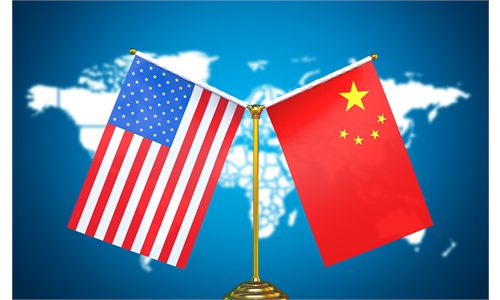America is a country of undoubted vast strengths—technological, economic, and cultural—yet its government is profoundly failing its own citizens and the world. Trump’s victory is very easy to understand. It was a vote against the status quo. Whether Trump will fix—or even attempt to fix—what really ails America remains to be seen.
The rejection of the status quo by the American electorate is overwhelming. According to Gallup in October 2024, 52% of Americans said they and their families were worse off than four years ago, while only 39% said they were better off and 9% said they were about the same. An NBC national news poll in September 2024 found that 65% of Americans said the country is on the wrong track, while only 25% said that it is on the right track. In March 2024, according to Gallup, only 33% of Americans approved of Joe Biden’s handling of foreign affairs.
At the core of the American crisis is a political system that fails to represent the true interests of the average American voter. The political system was hacked by big money decades ago, especially when the U.S. Supreme Court opened the floodgates to unlimited campaign contributions. Since then, American politics has become a plaything of super-rich donors and narrow-interest lobbies, who fund election campaigns in return for policies that favour vested interests rather than the common good.
Two groups own the Congress and White House: super-rich individuals and single-issue lobbies.
The world watched agape as Elon Musk, the world’s richest person (and yes, a brilliant entrepreneur and inventor), played a unique role in backing Trump’s election victory, both through his vast media influence and funding. Countless other billionaires chipped into Trump’s victory.
Many (though not all) of the super-rich donors seeks special favours from the political system for their companies or investments, and most of those desired favours will be duly delivered by the Congress, the White House, and the regulatory agencies staffed by the new administration. Many of these donors also push one overall deliverable: further tax cuts on corporate income and capital gains.
Many business donors, I would quickly add, are forthrightly on the side of peace and cooperation with China, as very sensible for business as well as for humanity. Business leaders generally want peace and incomes, while crazed ideologues want hegemony through war.
There would have been precious little difference in all of this with a Harris victory. The Democrats have their own long list of the super-rich who financed the party’s presidential and Congressional campaigns. Many of those donors too would have demanded and received special favours.
Tax breaks on capital income have been duly delivered by Congress for decades no matter their impact on the ballooning federal deficit, which now stands at nearly 7 percent of GDP, and no matter that the U.S. pre-tax national income in recent decades has shifted powerfully towards capital income and away from labor income. As measured by one basic indicator, the share of labor income in GDP has declined by around 7 percentage points since the end of World War II. As income has shifted from labor to capital, the stock market (and super-wealth) has soared, with the overall stock market valuation rising from 55% of GDP in 1985 to 200% of GDP today!
The second group with its hold on Washingtons is single-issue lobbies. These powerful lobbies include the military-industrial complex, Wall Street, Big Oil, the gun industry, big pharma, big Ag, and the Israel Lobby. American politics is well organised to cater to these special interests. Each lobby buys the support of specific committees in Congress and selected national leaders to win control over public policy.
The economic returns to special-interest lobbying are often huge: a hundred million dollars of campaign funding by a lobby group can win a hundred billion of federal outlays and/or tax breaks. This is the lesson, for example, of the Israel lobby, which spends a few hundred million dollars on campaign contributions, and harvests tens of billions of dollars in military and economic support for Israel.
These special-interest lobbies do not depend on, nor care much about, public opinion. Opinion surveys show regularly that the public wants gun control, lower drug prices, an end of Wall Street bailouts, renewable energy, and peace in Ukraine and the Middle East. Instead, the lobbyists ensure that Congress and the White House deliver continued easy access to handguns and assault weapons, sky-high drug prices, coddling of Wall Street, more oil and gas drilling, weapons for Ukraine, and wars on behalf of Israel.
These powerful lobbies are money-fuelled conspiracies against the common good. Remember Adam Smith’s famous dictum in the Wealth of Nations (1776): “People of the same trade seldom meet together, even for merriment and diversion, but the conversation ends in a conspiracy against the public, or in some contrivance to raise prices.”
The two most dangerous lobbies are the military-industrial complex (as Eisenhower famously warned us in 1961) and the Israel lobby (as detailed in a scintillating new book by historian Ilan Pappé). Their special danger is that they continue to lead us to war and closer to nuclear Armageddon. Biden’s reckless recent decision to allow U.S. missile strikes deep inside Russia, long advocated by the military-industrial complex, is case in point.
The military-industrial complex aims for U.S. “full-spectrum dominance.” It’s purported solutions to world problems are wars and more wars, together with covert regime-change operations, U.S. economic sanctions, U.S. info-wars, colour revolutions (led by the National Endowment for Democracy), and foreign policy bullying. These of course have been no solutions at all. These actions, in flagrant violation of international law, have dramatically increased U.S. insecurity.
The military-industrial complex (MIC) dragged Ukraine into a hopeless war with Russia by promising Ukraine membership in NATO in the face of Russia’s fervent opposition, and by conspiring to overthrow Ukraine’s government in February 2014 because it sought neutrality rather than NATO membership.
The military-industrial complex is currently—unbelievably—promoting a coming war with China. This will of course involve a huge and lucrative arms buildup, the aim of the MIC. Yet it will also threaten World War III or a cataclysmic U.S. defeat in another Asian war.
While the Military-Industrial Complex has stoked NATO enlargement and conflicts with Russia and China, the Israel Lobby has stoked America’s serial wars in the Middle East. Israel’s Benjamin Netanyahu, more than any U.S. president, has been the lead promoter of America’s backing of disastrous wars in Iraq, Lebanon, Libya, Somalia, Sudan, and Syria.
Netanyahu’s aim is to keep the land that Israel conquered in the 1967 war, creating what is called Greater Israel, and to prevent a Palestinian State. This expansionist policy, in contravention of international law, has given rise to militant pro-Palestinian groups like Hamas, Hezbollah, and the Houthis. Netanyahu’s long-standing policy is for the U.S. to topple or help to topple the governments that support these resistance groups.
Incredibly, the Washington neocons and the Israel Lobby actually joined forces to carry out Netanyahu’s disastrous plan for wars across the Middle East. Netanyahu was a lead backer of the War in Iraq. Former Air Force Command Chief Master Sergeant Dennis Fritz has recently described in detail the Israel Lobby’s large role in that war. Ilan Pappé has done the same. In fact, the Israel Lobby has supported U.S.-led or U.S.-backed wars across the Middle East, leaving the targeted countries in ruins and the U.S. budget deep in debt.
In the meantime, the wars and tax cuts for the rich, have offered no solutions for the hardships working-class Americans. As in other high-income countries, employment in U.S. manufacturing fell sharply from the 1980s onward as assembly-line workers were increasingly replaced by robots and “smart systems.” The decline in the labor share of value in the U.S. has been significant, and once again has been a phenomenon shared with other high-countries.
Yet American workers have been hit especially hard. In addition to the underlying global technological trends hitting jobs and wages, American workers have been battered by decades of anti-union policies, soaring tuition and healthcare costs, and other anti-worker measures. In high-income countries of northern Europe, “social consumption” (publicly funded healthcare, tuition, housing, and other publicly provided services) and high levels of unionisation have sustained decent living standards for workers. Not so in the United States.
Yet this was not the end of it. Soaring costs of health care, driven by the private health insurers, and the absence of sufficient public financing for higher education and low-cost online options, created a pincer movement, squeezing the working class between falling or stagnant wages on the one side and rising education and healthcare costs on the other side. Neither the Democrats nor Republicans did much of anything to help the workers.
Trump’s voter base is the working class, but his donor base is the super-rich and the lobbies. So, what will happen next? More of the same—wars and tax cuts—or something new and real for the voters?
Trump’s purported answer is a trade war with China and the deportation of illegal foreign workers, combined with more tax cuts for the rich. In other words, rather than face the structural challenges of ensuring decent living standards for all, and face forthrightly the staggering budget deficit, Trump’s answers on the campaign trail and in his first term were to blame China and migrants for low working-class wages and wasteful spending for the deficits.
This has played well electorally in 2016 and 2024, but will not deliver the promised results for workers in the long run. Manufacturing jobs will not return in large numbers from China since they never went in large numbers to China. Nor will deportations do much to raise living standards of average Americans.
This is not to say that real solutions are lacking. They are hiding in plain view—if Trump chooses to take them, over the special interest groups and class interests of Trump’s backers. If Trump chooses real solutions, he would achieve a strikingly positive political legacy for decades to come.
The first is to face down the military-industrial complex. Trump can end the war in Ukraine by telling President Putin and the world that NATO will never expand to Ukraine. He can end the risk of war with China by making crystal clear that the U.S. abides by the One China Policy, and as such, will not interfere in China’s internal affairs by sending armaments to Taiwan over Beijing’s objections, and would not support any attempt by Taiwan to secede.
The second is to face down the Israel lobby by telling Netanyahu that the U.S. will no longer fight Israel’s wars and that Israel must accept a State of Palestine living in peace next to Israel, as called for by the entire world community. This indeed is the only possible path to peace for Israel and Palestine, and indeed for the Middle East.
The third is to close the budget deficit, partly by cutting wasteful spending—notably on wars, hundreds of useless overseas military bases, and sky-high prices the government pays for drugs and healthcare—and partly by raising government revenues. Simply enforcing taxes on the books by cracking down on illegal tax evasion would have raised $625 billion in 2021, around 2.6% of GDP. More should be raised by taxation of soaring capital incomes.
The fourth is an innovation policy (aka industrial policy) that serves the common good. Elon Musk and his Silicon Valley friends have succeeded in innovation beyond the wildest expectations. All kudos to Silicon Valley for bringing us the digital age. America’s innovation capacity is vast and robust and an envy of the world.
The challenge now is innovation for what? Musk has his eye on Mars and beyond. Captivating, yet there are billions of people on Earth that can and should be helped by the digital revolution in the here and now. A core goal of Trump’s industrial policy should be to ensure that innovation serves the common good, including the poor, the working class, and the natural environment. Our nation’s goals need to go beyond wealth and weapons systems.
As Musk and his colleagues know better than anybody, the new AI and digital technologies can usher in an era of low-cost, zero-carbon energy; low-cost healthcare; low-cost higher education; low-cost electricity-powered mobility; and other AI-enabled efficiencies that can raise real living standards of all workers. In the process, innovation should foster high-quality, unionised jobs—not the gig employment that has sent living standards plummeting and worker insecurity soaring.
Trump and the Republicans have resisted these technologies in the past. In his first term, Trump let China take the lead in these technologies pretty much across the board. Our goal is not to stop China’s innovations, but to spur our own. Indeed, as Silicon Valley understands while Washington does not, China has long been and should remain America’s partner in the innovation ecosystem. China’s highly efficient and low-cost manufacturing facilities, such as Tesla’s Gigafactory in Shanghai, put Silicon Valley’s innovations into worldwide use … when America tries.
All four of these steps are within Trump’s reach, and would justify his electoral triumph and secure his legacy for decades to come. I’m not holding my breath for Washington to adopt these straightforward steps. American politics has been rotten for too long for real optimism in that regard, yet these four steps are all achievable, and would greatly benefit not only the tech and finance leaders who backed Trump’s campaign but the generation of disaffected workers and households whose votes put Trump back into the White House.
Related posts:












